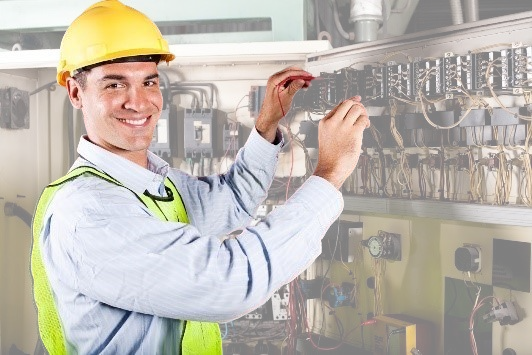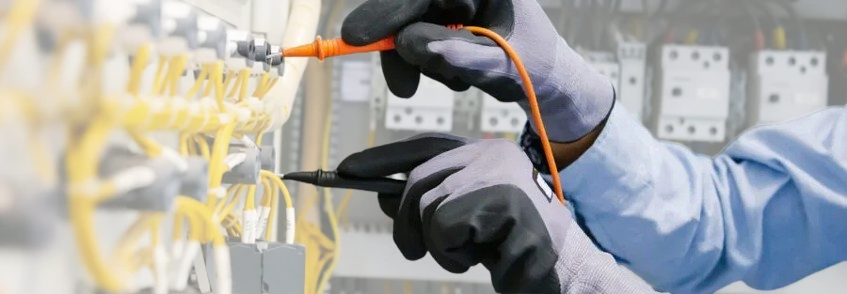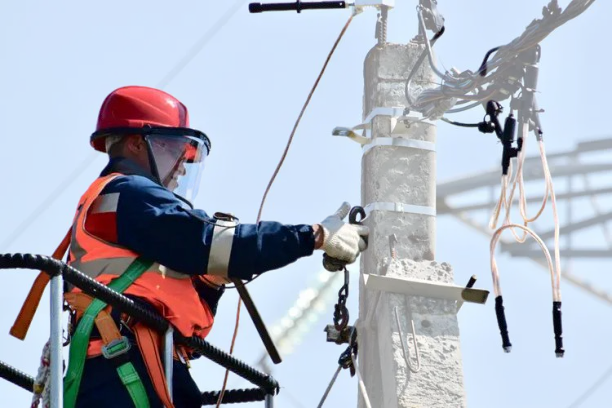Looking for a safe and rewarding job? Electrician jobs offer great pay, growth prospects, and the potential to be employed in many different industries. First-time entering the job market or looking to change careers? Becoming an electrician can pave the way for a bright future https://bestworldjob.com.

Electrician jobs
Comprehending Electrician Job Responsibilities: Primary Responsibilities Explained
Comprehending Electrician Job Descriptions
Electricians are skilled workers tasked with installing, repairing, and maintaining electrical systems in residential homes, offices, and factories. They ensure seamless and secure electrical supply, ranging from wiring a house to electrifying an office building. Job descriptions vary depending on experience level and specialty but largely involve interpreting blueprints, detecting electrical problems, and adhering to safety protocols.
Electrician Job Duties by Career Level
Electrician Helper Job Duties
Assistant to licensed electricians, the electrician helper readies work areas, holds tools, and assists with small installations. Their work is observation and doing simple labor tasks like cutting wires or drilling holes.
Apprentice Electrician Job Duties (0–3 Years)
Apprentice electrician job perform their job under supervision to learn trade fundamentals. Tasks include wiring outlets, installing lighting, interpreting technical drawings, and following electrical codes. They also study in technical school to supplement on-the-job training.
Journeyman Electrician Duties (3–7 Years)
Journeymen are trained to work on their own and can lead small teams. They install and fix electrical circuits, read blueprints, and implement safety regulations. They could also supervise Electrician Jobs apprentices and work with contractors on job sites.

Master Electrician Responsibilities (7–10+ Years)
Electrician Jobs Master electricians have the highest license and can lay out complete electrical systems. They tend to have businesses, oversee personnel, bid on projects, and inspect that everything is up to local codes. Their assignments typically consist of detailed installs and strategic management.
Training and Certification
It is done through formal training and on-job experience. Electricians usually have a four-year apprenticeship that includes classroom training and on-the-job training. Certifications such as the National Electrical Code (NEC) and state licenses are required for advancement. Continuing education is also required in order to maintain updated codes and technologies.
Tools and Equipment Used by Electricians
Electricians utilize a variety of tools in order to perform their job that includes:
- Wire strippers
- Multimeters
- Conduit benders
- Power drills
- Circuit testers
- Fish tapes
- Voltage detectors
Having the right tools ensures a job is easier and safer to do.

Electrical Work in Residential vs. Commercial Environments
Residential Work
Residential electricians do the wiring and maintenance of electrical systems in homes and apartments. They put in lighting, outlets, circuit breakers, and ensure things are up to local housing codes. Most of the work is renovations, new installations, or home inspections.
Commercial Work
Commercial electricians work in office buildings, factories, schools, and shopping centers. Wiring huge electrical circuits, power distribution systems, and installation of high-level control systems are their duties .Electrician Jobs Commercial code expertise is required for these kinds of projects, and collaboration with architects and engineers is routine.
Field Pulse: Enabling Electrical Business Operations
Using Field Pulse in Electrician Hiring and Performance Tracking
Field Pulse is a computer program that streamlines business functions for electric businesses. It makes hiring, scheduling, and employee performance easy to manage Electrician Jobshttps://www.glassdoor.com.
Monitor Productivity and Efficiency
The program tracks work completed each day, percent completed, and logs the amount of time to gauge how well electricians are getting the job done.
Identify Skill Deficiencies and Provide Targeted Training
FieldPulse allows managers to monitor job outcomes and identify where additional training or mentoring is needed to improve skills and performance.
Monitor Certifications and Remain Compliant
FieldPulse can be used by businesses to safely store and monitor employee certifications and licenses, keeping all electricians current with industry standards.

Simplify Training Processes
Managers can create customized training programs from the learning requirements of employees utilizing job report information and field evaluation.
Simplify Performance Reviews and Feedback
Performance reviews can be simplified using embedded templates and automation capabilities, allowing managers to give timely and constructive feedback. Electrician Jobs Field Pulse collects crucial performance information, enabling electrical businesses to make informed decisions about employees, promotions, and project scheduling
Types of Electricians
Electricians can specialize in different areas depending on their interest and ability:
- Residential Electricians install electrical wiring, lighting, and panels in homes.
- Commercial Electricians deal with bigger systems in office buildings, stores, and other commercial buildings.
- Industrial Electricians work with heavy machinery and equipment in factories or manufacturing plants.
- Maintenance Electricians ensure systems remain online by performing regular checks and maintenance work.
- Construction Electricians put new systems and wiring into buildings under construction.
- Lineman Electricians work on power lines and outdoor transformers.
Training and Education Requirements
Steps to become an electrician typically involve the following:
- High School Diploma or Equivalent – Stress math, physics, and technical courses.
- Trade School or Technical Program – Learn electrical theory, safety, and hands-on skills.
- Apprenticeship (4–5 Years) – Assist licensed electricians while gaining pay and experience.
- Licensing and Certification – Most states mandate an exam to work independently.
Electrician Jobs Based on Level of Experience
Electrician Assistant
- Aids lead electricians
- Begins to grab tools, measure, and cut wire
- Preps installation sites
Apprentice Electrician (0–3 Years)
- Trains on the job and in the classroom
- Installs basic wiring and assists with more complex work
- Becoming familiar with local electrical codes
Journeyman Electrician (3–7 Years)
- Works independently under the master license
- Installs, tests, and debugs whole systems
- Reads blueprints and manages apprentices
Master Electrician (7+ Years)
- Oversees projects and manages teams
- Designs systems and inspects for code compliance
- Starts their own contracting business freely
Principal Skills and Traits of Successful Electricians
- Good problem-solving and critical thinking
- Good hand-eye coordination
- Knowledge of safety standards
- Physical stamina for hard physical work
- Customer service and communication
Typical Work Setting
Electricians work in a variety of work settings, including construction sites, homes, commercial offices, factories, and outdoors. Electrician Jobs The job occasionally requires traveling to job sites, working in cramped spaces or heights, and being on call for emergencies.
Career Advancement Opportunities
Electricians can advance to supervising, become electrical inspectors, specialize in areas further, or begin their own business. Electrician Jobs Higher certifications in home systems or green energy can lead to better-paying careers.
Median Wage and Job Projections
American electricians earn a median income of $50,000 to $70,000 annually, varying by city, experience, and certification. Electrician Jobs demand is predicted to grow steadily as infrastructure wears out and energy demand grows.

Frequently Asked Question
What does an electrician do?
Installs, maintains in working condition, and repairs electric equipment for Electrician Jobs.
How long does it take to become one?
About 4–5 years as an apprentice.
Do I need a degree?
No, just a high school diploma or GED and vocational training.
Is it a good career?
Yes—offers stable employment, good pay, and potential for advancement.
How much do electricians earn?
$50,000–$70,000 per year on average.
Is it dangerous?
There are hazards, but training makes it safe.
Do I need a license?
Yes, most states demand an independent work license.
Can I specialize?
Yes—residential, commercial, industrial, solar, etc.
What are the skills?
Problem-solving, hand coordination, safety awareness.
What equipment am I working with?
Wire strippers, testers, drills, screwdrivers, etc.
Conclusion of Electrician Jobs
A career as an electrician offers manual labor, security, and chances for advancement. Whether starting or promoting up the line, it’s a satisfying career for those who enjoy working with technical challenges and to overcome them.